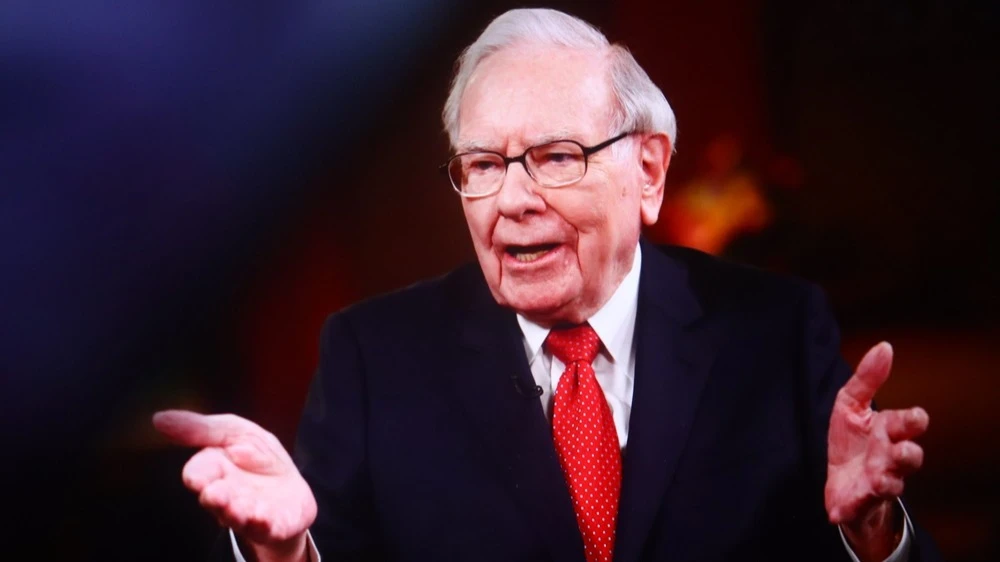"A grim warning to investors": what signals is Buffett sending?

Warren Buffett's Berkshire Hathaway continues to sell more assets than it buys, refraining from even buying its own stock. This cautious tactic may be a warning to be careful in an overheated market. What did Berkshire Hathaway's quarterly report show - and what lessons can private investors learn from it?
What the report showed
Information on exactly which stocks Buffett and his team bought and sold in the second quarter is not yet available to investors. However, the quarterly results released on Aug. 2 provide a "very clear picture" of their tactics during the period, writes The Motley Fool. However, the quarterly results released on Aug. 2 provide a "very clear picture" of their tactics during the period, writes The Motley Fool.
Despite a drop in stock prices due to Donald Trump's duty hikes, Berkshire Hathaway sold $6.9 billion worth of stock and bought only $3.9 billion worth during the second quarter. "Investors and respect Warren Buffett for his ability to spot amazing deals hidden in plain sight, and some seek to copy his buying activity, but the harsh truth is that the billionaire and Berkshire CEO has remained a net seller of stocks for 11 consecutive quarters," the publication notes.
It's also the fourth consecutive quarter that Berkshire hasn't bought back its own stock either, although it had conducted buybacks for 24 consecutive quarters before this pause. Buffett has refrained from buying despite the fact that Berkshire Hathaway has a huge cash hoard - $344 billion as of June 30
"Collectively, these capital allocation decisions represent a grim warning to investors," accounts The Motley Fool.
Is Buffett waiting for a market crash?
Two immutable rules of Buffett's investment philosophy: don't bet against America and look for bargains. Obviously, despite having spare cash, Buffett and his team simply have no incentive to deploy capital, given how high the stock market has risen, considers the publication.
In particular, the market's undervalued or overvalued indicator, which is known as the "Buffett indicator," reached an all-time high just over a week ago. The ratio, which compares the value of all publicly traded U.S. companies to GDP, has historically averaged 85% since 1970. But in late July, it surpassed 210%. In the past, records for the "Buffett Indicator" have been followed by a significant pullback in stocks. For example, in March 2000, just before the collapse of the dot-com bubble, the indicator soared to 144%. When the bubble burst, the S&P 500 and Nasdaq indexes lost 49% and 78%, respectively.
Another signal that the stock market will go down in the next 1-3 years comes from the so-called Shiller ratio, P/E, based on a 10-year average of inflation-adjusted earnings. The ratio, proposed by Nobel laureate Robert Shiller, reached 37.8 at the end of July. In the history of calculations since 1957, such a level has been recorded very rarely - in less than 5% of months. After such values, the S&P 500 index, as a rule, showed negative dynamics: on average, minus 3% after one year, minus 12% after two years and minus 14% after three.
What else is important for investors
At the same time, investors should also consider context when copying Buffett's tactics, notes The Motley Fool: The Oracle of Omaha's indecision is likely due to the size of his company. Berkshire Hathaway now has a market capitalization of about $1 trillion, and its stock portfolio is valued at more than $280 billion. Consequently, buying a few billion dollars worth of stock won't have a significant impact on the company's financial position.
However, ordinary investors are not limited in their options in the same way as Berkshire, the publication points out: buying a few thousand dollars worth of stock will affect the financial position of most.
"So, while private investors should heed Buffett's signals to some extent, they should not avoid the stock market entirely <...> However, given the high valuation of the S&P 500 Index, investors should focus on reasonably valued stocks that they are willing to hold in a volatile environment," concludes The Motley Fool.
Which stocks Buffett and his managers picked in the second quarter, Berkshire will disclose in mid-August, when it files a Form 13F report with the Securities and Exchange Commission.
This article was AI-translated and verified by a human editor
